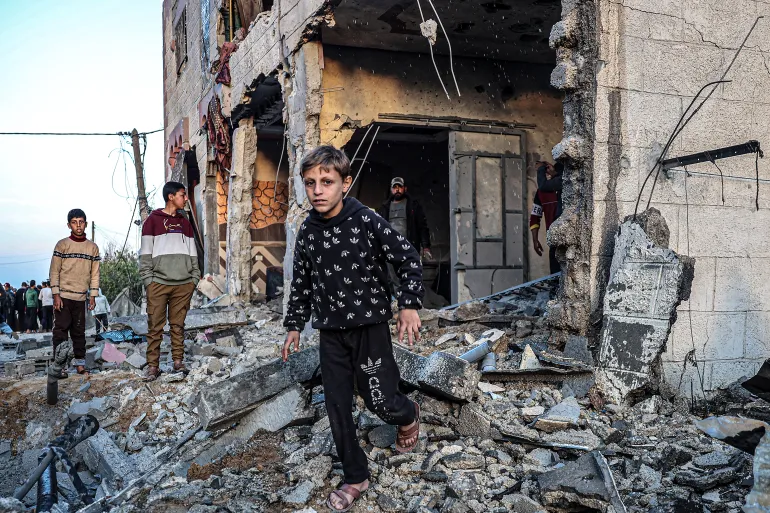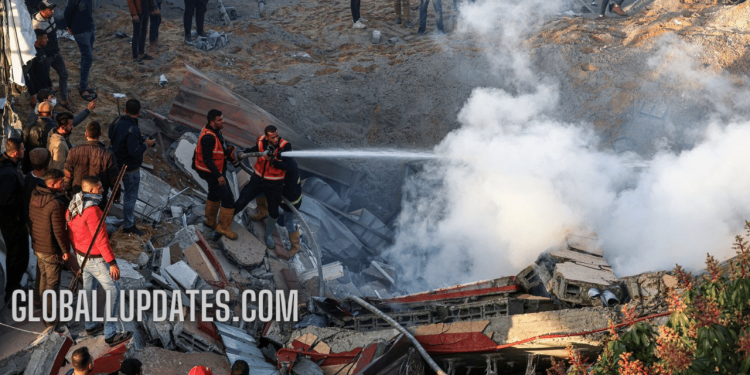Introduction to US-Israel Relations and Rafah’s Strategic Importance
The relationship between the United States and Israel has long been marked by deep strategic, political, and cultural ties. Amidst this complex relationship, the city of Rafah, located in the southern part of the Gaza Strip, has emerged as a focal point of significant military and geopolitical concern. This article delves into the recent dialogues between US and Israeli officials regarding proposed military operations in Rafah, exploring the implications for regional stability, humanitarian issues, and international diplomacy.
US Officials Express Concerns Over Proposed Operations in Rafah
Recently, US officials have once again voiced their apprehensions to their Israeli counterparts about potential military operations in Rafah. These discussions underscore the US’s caution against a broad offensive, advocating instead for a more targeted approach that minimizes civilian casualties. The strategic significance of Rafah, coupled with its dense civilian population, makes any military action there particularly sensitive and prone to international scrutiny.
Humanitarian Considerations and US Advocacy for Civility
The US has repeatedly emphasized the need to prioritize humanitarian considerations in Rafah. American diplomats have urged Israel to ensure that any military actions are preceded by and coupled with robust measures to protect civilians and prevent a humanitarian crisis. This includes the US’s advocacy for sustained humanitarian aid flows to Gazan civilians, facilitated through new routes such as the Ashdod Port in Israel, highlighting the intertwined nature of military strategy and humanitarian response.
Role of International Mediators and the US’s UN Diplomacy
The situation in Rafah has also attracted the attention of international mediators like Qatar, which has played a significant role in attempting to broker ceasefires and mitigate escalations. Simultaneously, the US’s actions in the United Nations, particularly its veto of a resolution to grant full member status to the State of Palestine, underscore the diplomatic complexities involved. These maneuvers reflect a broader strategy to balance international law, state relationships, and the realities of geopolitical negotiations.
- Israel’s Strategic Response to Iran’s Unprecedented Attack
- On the Brink: Analyzing Israel’s Response to Iran’s Unprecedented Missile and Drone Attack
Political and Global Repercussions of Potential Military Actions
The potential for a major Israeli offensive in Rafah carries significant political repercussions. Such actions could further destabilize the already fragile Gaza Strip and lead to international condemnation. This section analyzes the possible outcomes of increased military activity in Rafah, considering the responses from global stakeholders, including EU countries and other Middle Eastern states, who monitor these developments closely for their broader implications on regional peace and stability.

Historical Context and Lessons from Past Military Engagements
Reflecting on the history of military engagements in Gaza provides crucial insights into the current situation. Previous operations have often led to significant civilian casualties and international outcry, influencing current US and Israeli strategies. This historical perspective is vital for understanding the shift towards more targeted and intelligence-driven military operations in places like Rafah.
US-Israel Strategic Dialogues: Shaping the Defense Landscape
Recent strategic dialogues between US and Israeli officials have focused on aligning their defense strategies in the face of mutual threats, such as those posed by Iran’s regional ambitions. These meetings have addressed the balance between defeating hostile entities like Hamas and ensuring that military operations do not lead to disproportionate civilian suffering or violate international standards.
Evolving Military Tactics and Technological Impact
The Israeli military’s evolving tactics, particularly the integration of advanced technologies and intelligence-driven operations, signify a shift towards more precise and strategic military engagements. This evolution is partly in response to international demands for greater accountability and precision in military operations to prevent civilian casualties.
Human Rights and International Law in Military Operations
This section discusses the significant human rights concerns arising from military operations in densely populated areas like Rafah. It examines the international legal frameworks that govern such actions, highlighting the challenges and responsibilities faced by states engaged in conflict zones.
Looking Ahead: The Future of Gaza and Peace Prospects
The future of Gaza, and particularly Rafah, remains uncertain with ongoing military tensions and the slow progress of peace initiatives. This concluding section explores the potential pathways to peace, emphasizing the role of the international community in supporting sustainable and fair resolutions to the conflict.
Conclusion: Anticipating Further Developments
In conclusion, the US-Israeli discussions on Rafah’s future are a microcosm of the larger Israeli-Palestinian conflict, embodying the challenges of balancing strategic objectives with humanitarian concerns. As both nations continue to navigate these tumultuous waters, the international community remains watchful, hoping for resolutions that bring stability to the region and safety to its inhabitants.














































